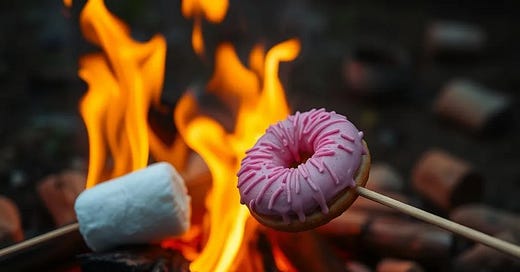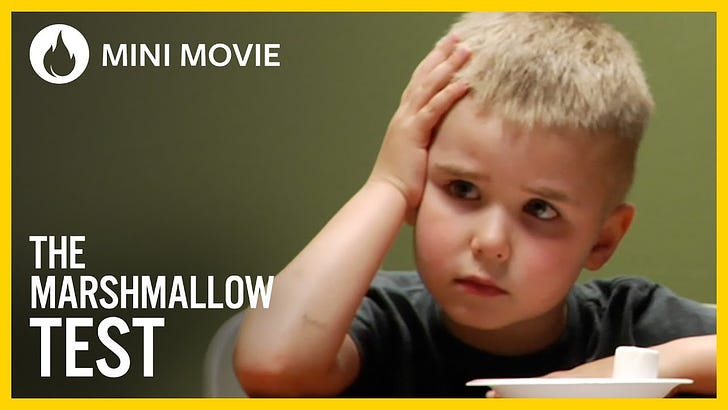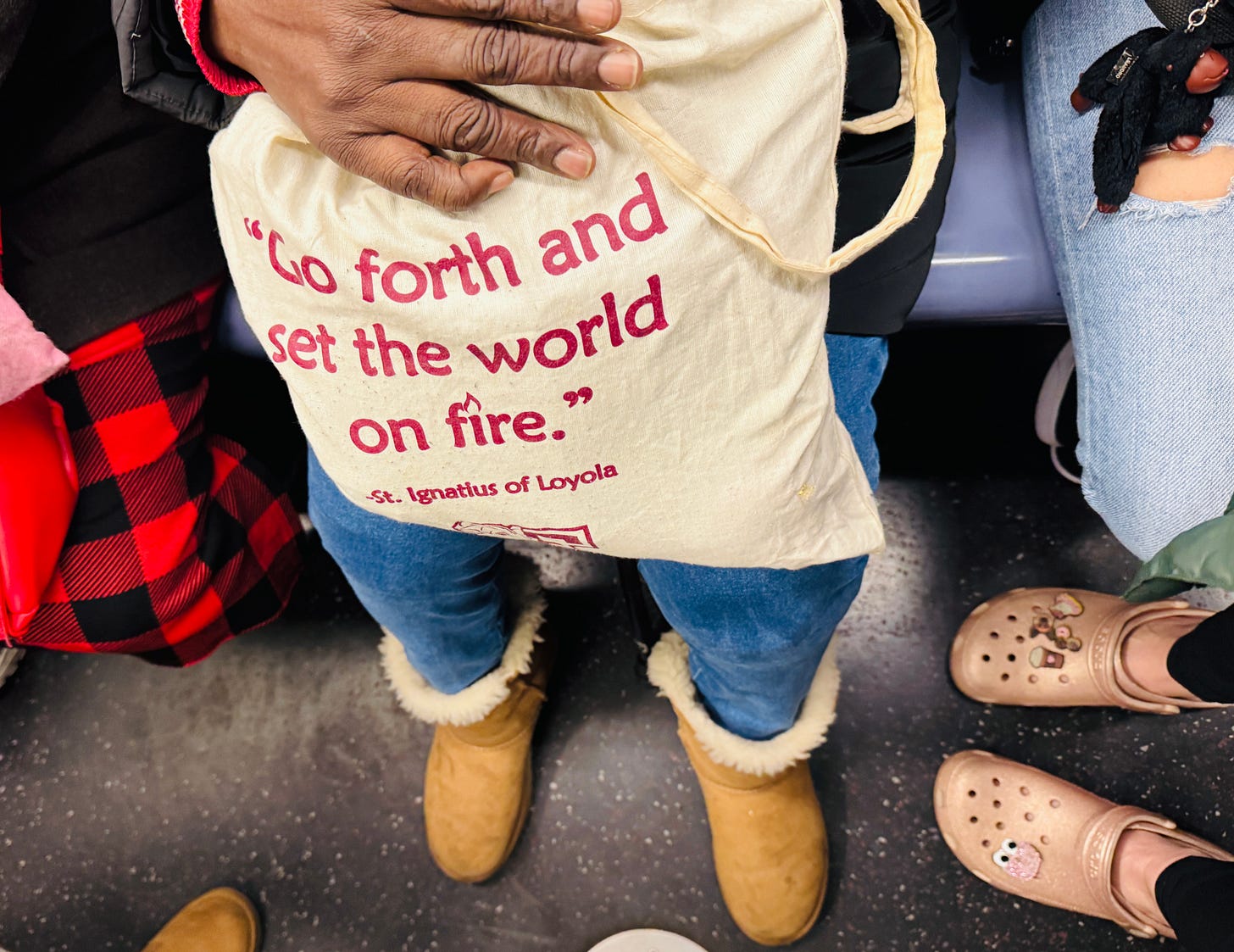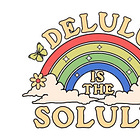Catch up on part one first:
“I think writers are often terrifying to normal people — that is, to nonwriters in a capitalist system. There is almost nothing they will not sell in order to have the time to write. Time is our mink, our Lexus, our mansion.”
—, How to Write An Autobiographical Novel
via Eula Biss’ Having and Being Had
You’ve gotta hand it to Brian Resnick at Vox for his punny headline, “The ‘marshmallow test’ said patience was a key to success. A new replication tells us s’more,” with the subhead, “The famous psychology test gets roasted in the new era of replication.”
He shares data from twenty years on that showed kids who resisted grabbing those marshmallows did better on their SATs—but that these findings were later debunked, as we talked about last time, in no small part because “the studies were small, and subjects were the kids of educated, wealthy parents.”
“Here’s some good news,” Resnick writes. “Your fate cannot be determined solely by a test of your ability at age 5 to resist the temptation of one marshmallow for 15 minutes to get two marshmallows.”
I was able to resist. I just held myself under such rigid, fear-based self-control that I couldn’t bring myself to eat many proverbial marshmallows.
Some of the beliefs I have worked hard to unwind as an adult have been about letting money flow through me, not hoarding it.1 I can’t tell you how many nice candles I bought in my twenties that I never lit once, bars of soap that sat in boxes on bathroom shelves, or pieces of fancy lingerie I never wore; even if I succumbed to the rare splurge, the fanciest and/or most expensive were relegated to the bottom of my clothing drawers for years with tags still on.
It was never the right day. I didn’t want any of these finer things to disappear, to become less perfect with use. I didn’t want to “waste” them on non-ultra-special-occasions. I didn’t realize the special occasion was my life, the mundane . . . me.
I read personal finance books obsessively in my early twenties, and made an earnest attempt at doing all of it “right.” I was going to get an A+ in responsible adulting: never miss a credit card payment, start a Roth IRA, max out contributions at work, invest in index funds and real estate, etc. On the one hand, we’re told to live frugally and save for retirement. On the other, we’re told “you can’t take any of it with you,” we should aim to Die With Zero.
What will we regret more? Not saving enough (a terrifying thought given how our society treats aging and the medical industrial system’s unconscionable price gouging) or not spending enough on meaningful experiences? As with all things, there’s a Middle Path in there somewhere . . . it’s just not always easy to discern in real-time.
As shares in his book, The Power of Regret: How Looking Backward Moves Us Forward, regret is better understood less as a fixed thing and more as a process; one that makes us better.2 In his study of nearly 4,500 Americans, he found that nearly all regrets fall into four core categories. They sound like this:
Foundation: “If only I had done the work.”
Boldness: “If only I had taken that chance.”
Moral: “If only I had done the right thing.”
Connection: “If only I had reached out.”
Boldness regrets are some of the highest, outnumbering the others by two to one. “Over time, we are much more likely to regret the chances we didn’t take than the chances we did,” Pink writes. “What haunts us is the inaction itself.”
It is with that in mind—and, cringe as it is to cite now, Jeff Bezos’ Regret Minimization Framework—that I decided to go all-in on my Free Time bets (book, podcast, and private community) in late 2020.
In 2021, for the first time in my life, I forewent patience in favor of the present, cashing in my biggest financial stockpile to fund this creative dream. It was the first year I gave myself full permission not to actively try to earn. I started babysitting when I was eleven years old, and I didn’t let up on that earning obsession until then. Even while working at Google early in my career, the coveted tech job of the mid-aughts, I cooked up side hustles to earn extra income, mainly by tutoring small business owners in HTML and CSS so they could edit their own websites instead of hiring expensive contractors.
Was it worth it? If I had known how financially unstable the ensuing years would be, would I have still done it?
Yes, I think so. I know what true freedom tastes like.
Free Time was never just about the money (though in my delulu dreams, that whole side of the business would have gained more sustainable traction than it did). As I say on the hardcover’s book flap, your time is far more precious than money—it is life force. After 2020’s losses, I was ready to bet on myself, knowing that for the rest of my life, at least once I went all-in on seeing a creative dream fully realized.
I traded my security blanket for boldness. I finally lit the candle. I ate the damn marshmallows. I skewered them on a stick and set them ablaze (my favorite form of s’mores), blowing out the ball of fire only when the outside was charred black and the inside perfectly melted. I laid out those two squares of chocolate on a graham cracker, and I savored the damn sandwich.
Two summers later, in 2023, still thrilled by the dessert’s aftertaste, I’d start Rolling in Doh. Sometimes, my inner CFO pipes up to reprimand me for eating so many marshmallows in 2021 and 2022, for being so irresponsible, and for not making my money stretch farther than I did, especially knowing my big Favorite (Former) Client could cancel their contract at any time amidst all that same volatility—equivalent to a year’s salary that I still haven’t quite figured out how to replace.
But then I remember how sumptuous that freedom s’more tasted, and how I hope to someday make another one. Sometimes, the Marshmallow Test becomes: Can you enjoy your life? Did you enjoy your life? Or were you stuck in the waiting room,3 bored out of your mind, anxiously fidgeting, waiting for some flawed adult authority to return and tell you what to do?
A six-year-old may not have the autonomy to get up and leave the room, but we do.
See you at the campfire.4
🪵🔥❤️
I love Tosha Silver’s teachings on this, particularly her books Outrageous Openness and It’s Not Your Money. She also wrote Change Me Prayers, which is a beautiful compliment if you enjoy the first two. Check out these related Free Time episodes, too:
For more on the four types of regret that identified, check out this TED video:
I was fortunate to meet Christina Rasmussen at a speaking event in 2012, where I first learned about her waiting room metaphor, and her radiance and story blew me away. Check out and her book, Second Firsts: A Step-by-Step Guide to Life After Loss.
No joke: on my way home, fifteen minutes after I scheduled this post to go live, I spotted this subway serendipity signage. Can you spot Dohnut? 🍩 👀
👉 If you enjoyed this post, you might also appreciate:














When I traveled to my family's ancestral hometown in Italy in 2004, I brought back a tin of gorgeous, perfect olive oil. I kept that olive oil for so long, because as you said, NOTHING was special enough to use it on. When, finally, I did deem a moment worthy enough of the olive oil, I opened it only to find it had gone rancid. :((
That was the moment I decided to enjoy beautiful things NOW. I buy nice soap, and I USE it. I burn those candles. Drink that wine (well, as soon as it's properly aged). I have to say, it's so freeing!
And now, of course, I'm leaning on my life savings to do work in the last chapter of my work life that I love. It feels SOOOOO uncomfortable at times. Reading Olivier Burkeman's book Four Thousand Weeks was the final nudge (and reframe) I needed to go for it. Yet as we have frequently lamented, this decision is not without occasional wobbles!